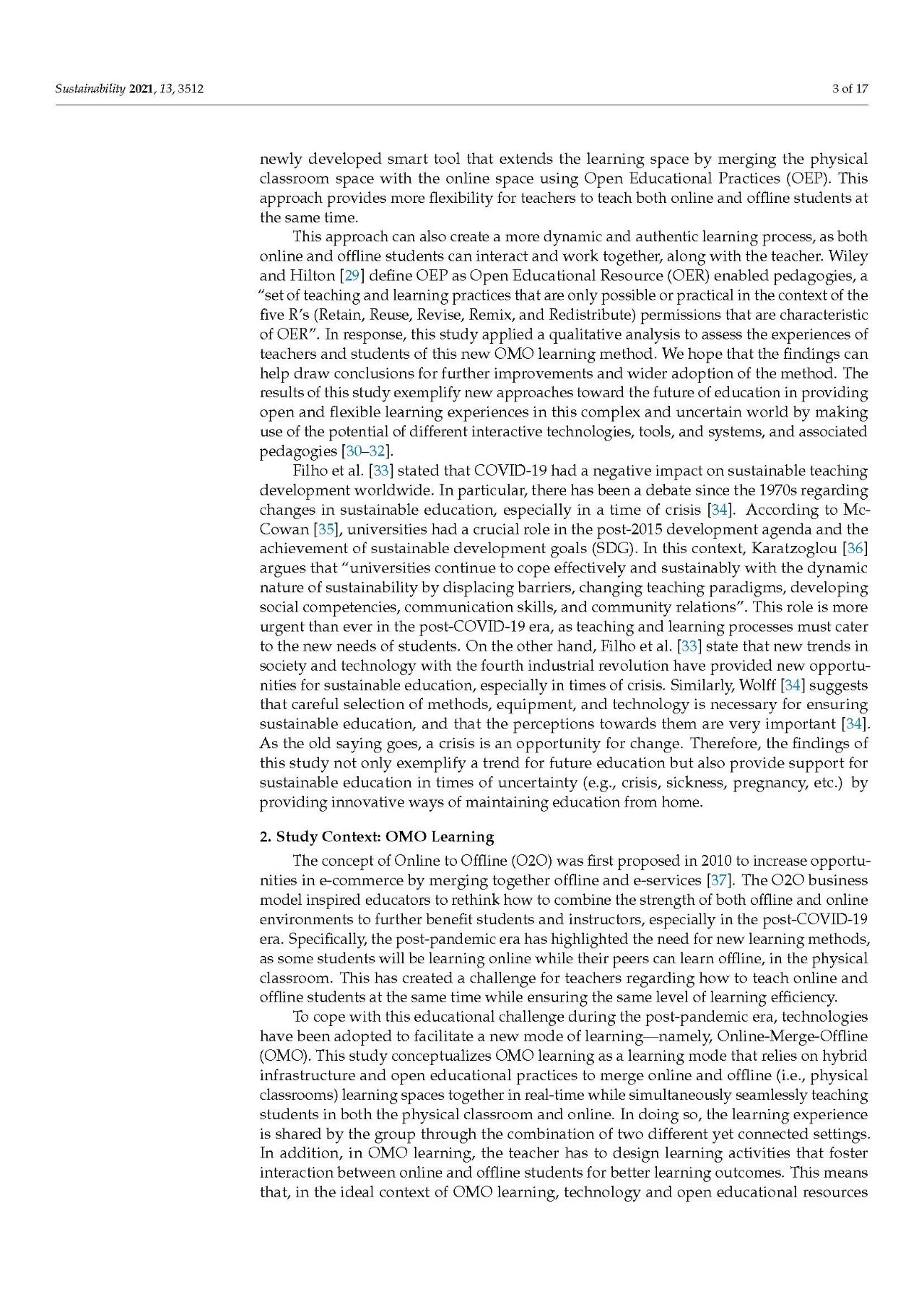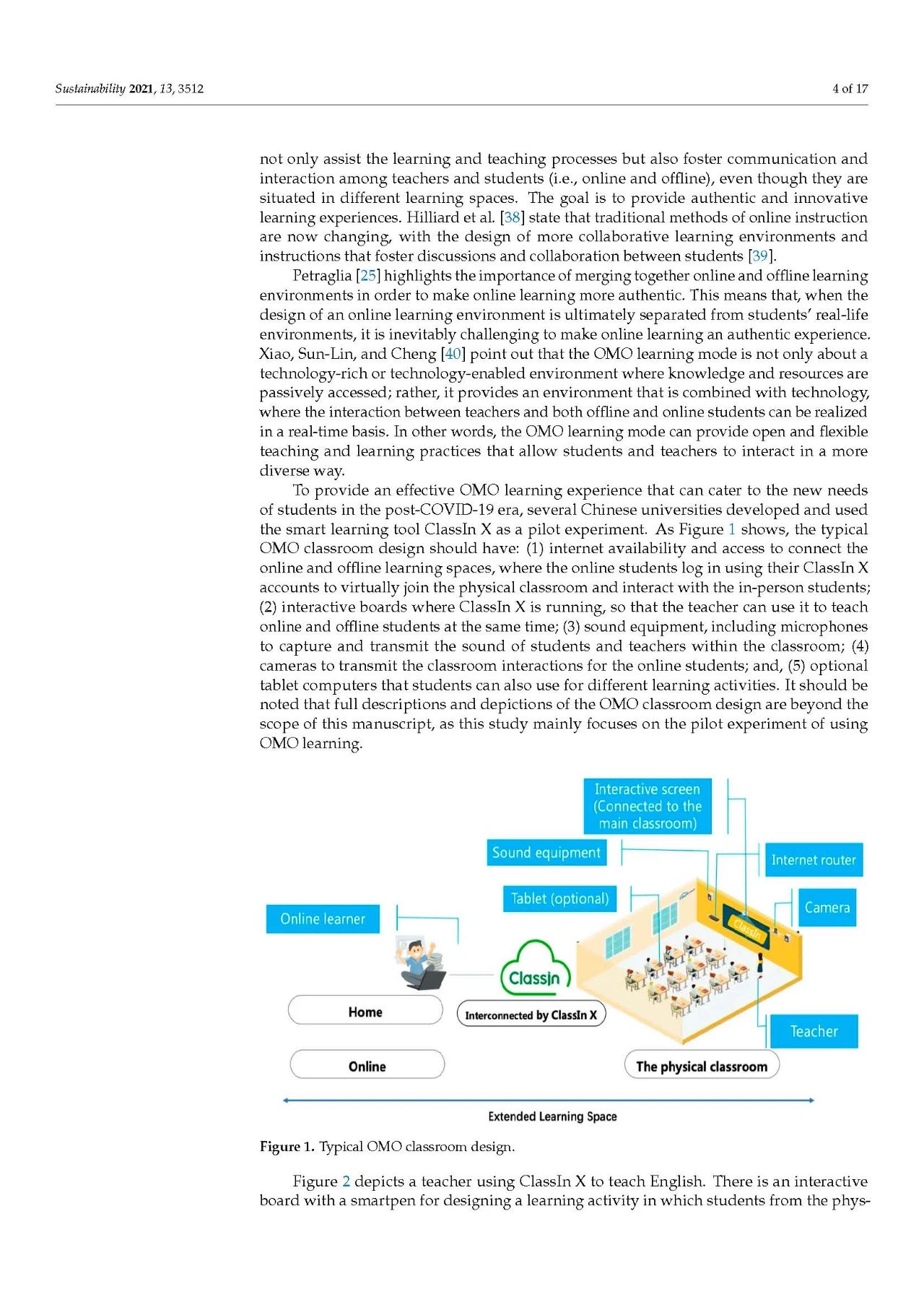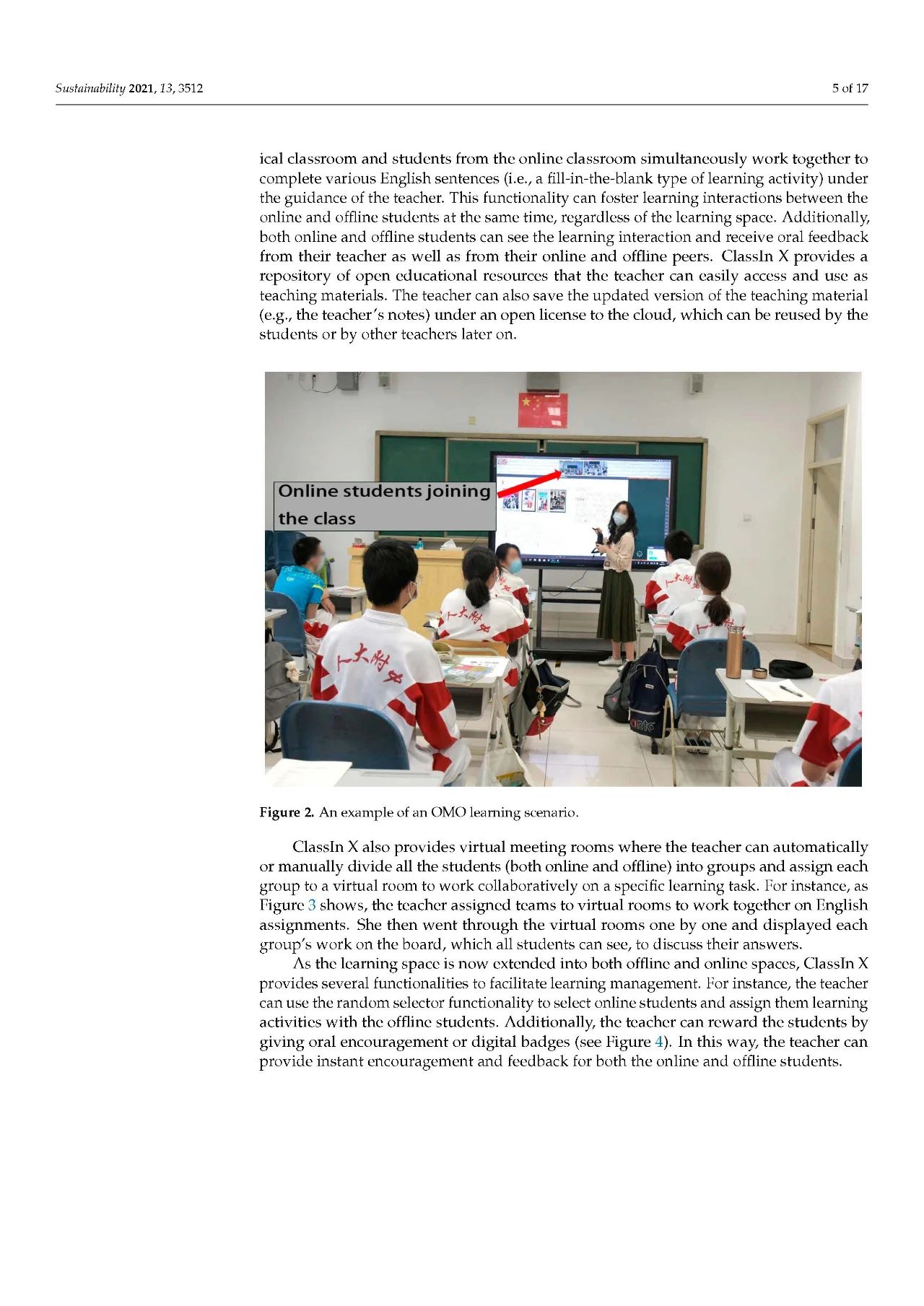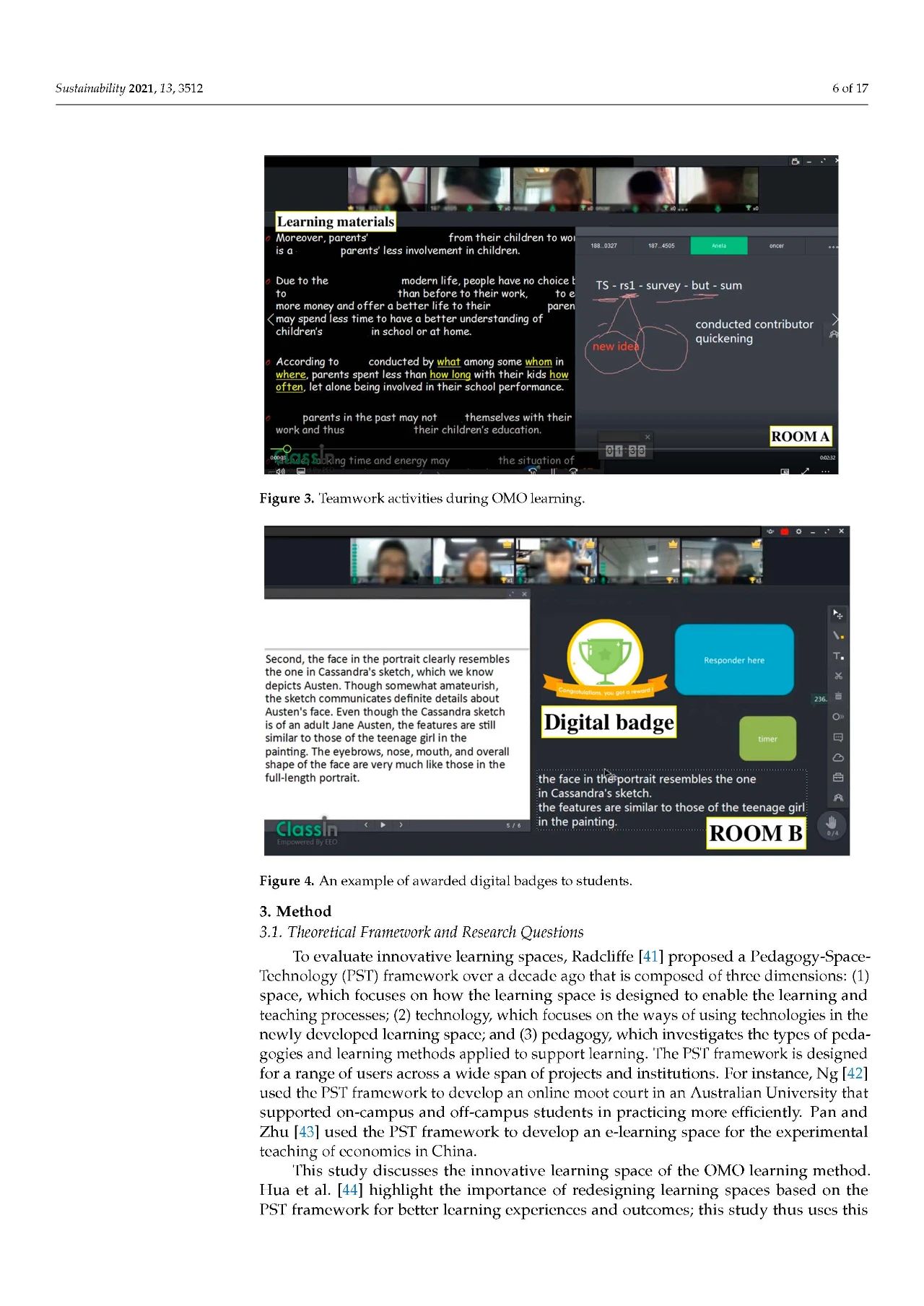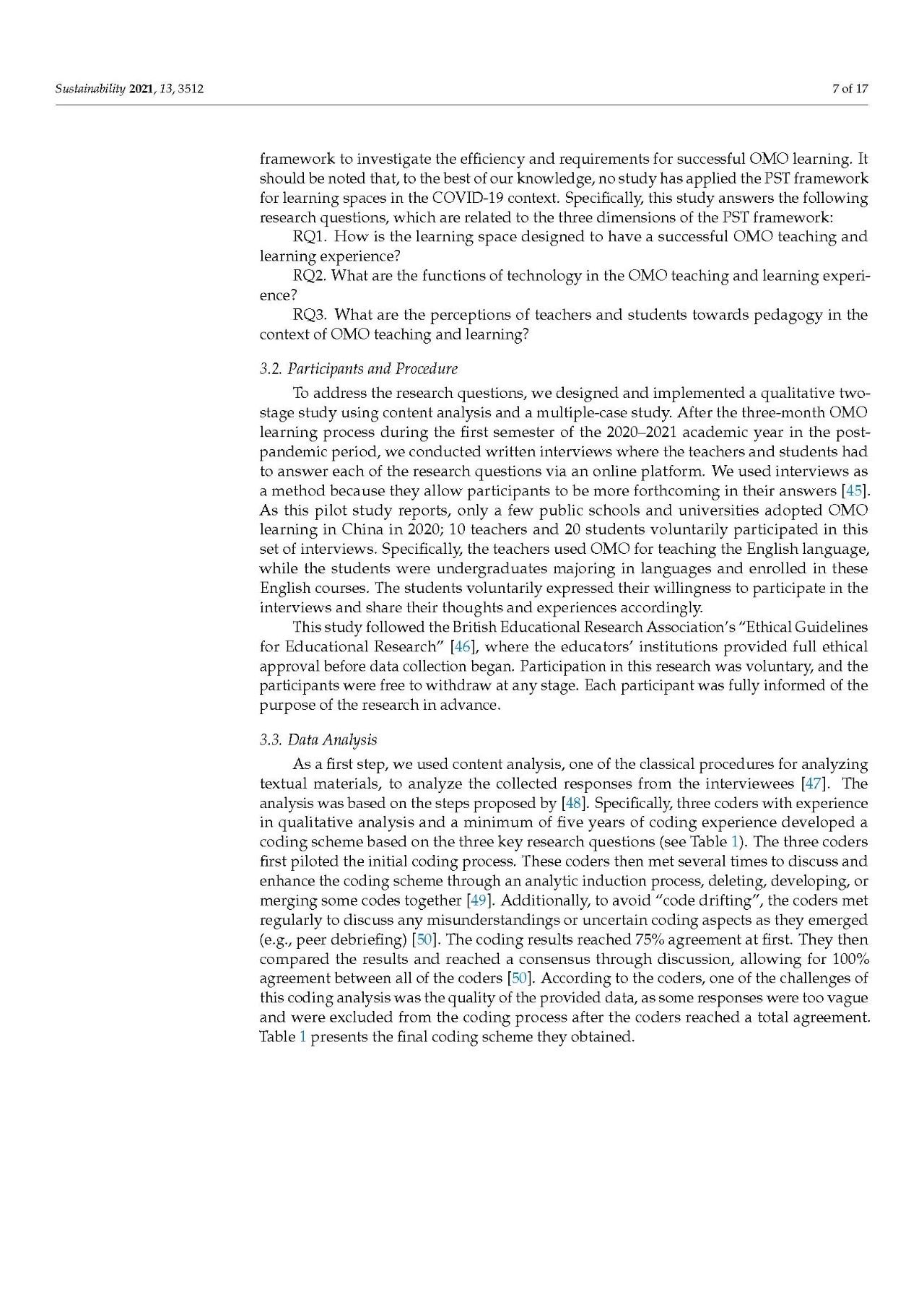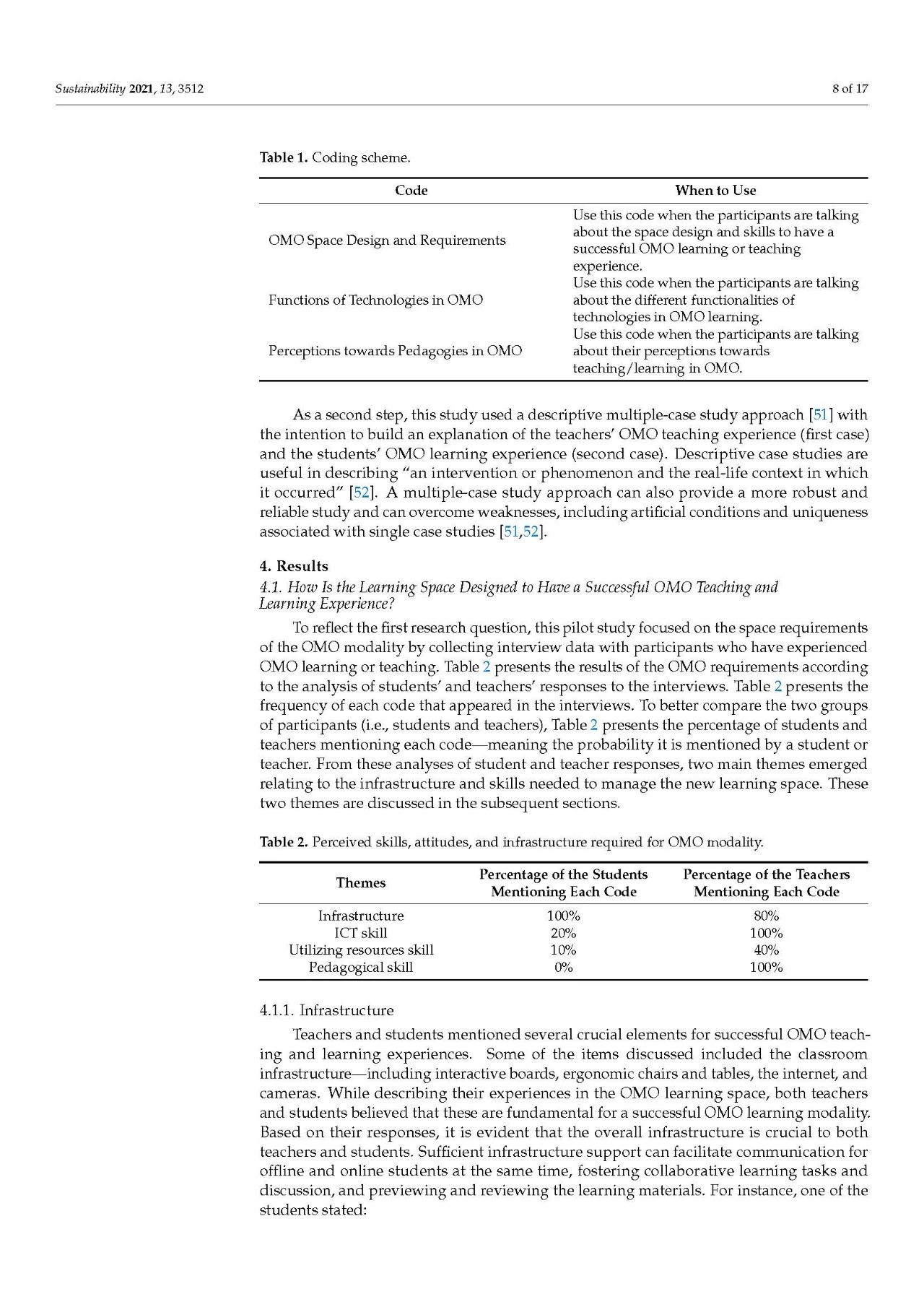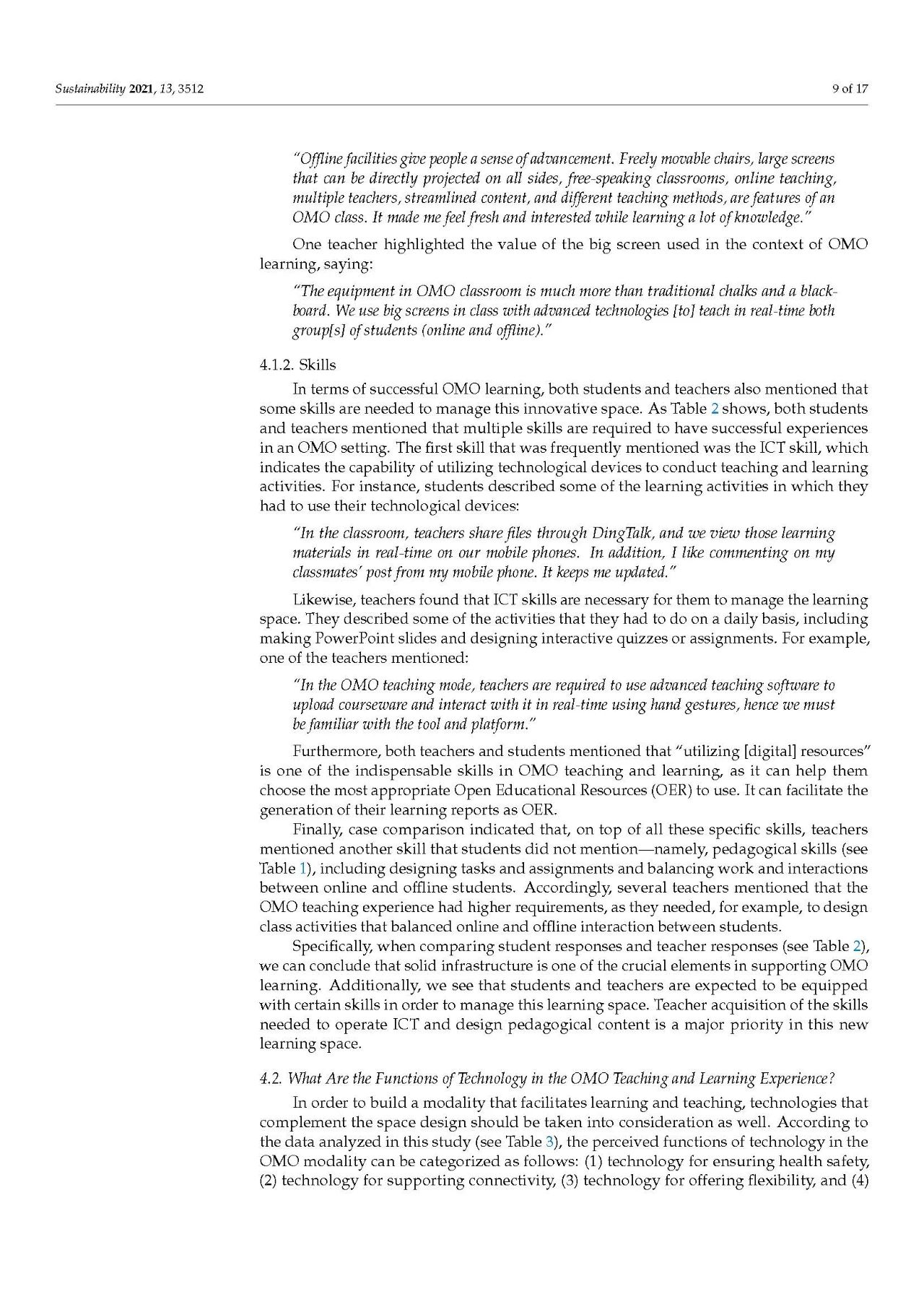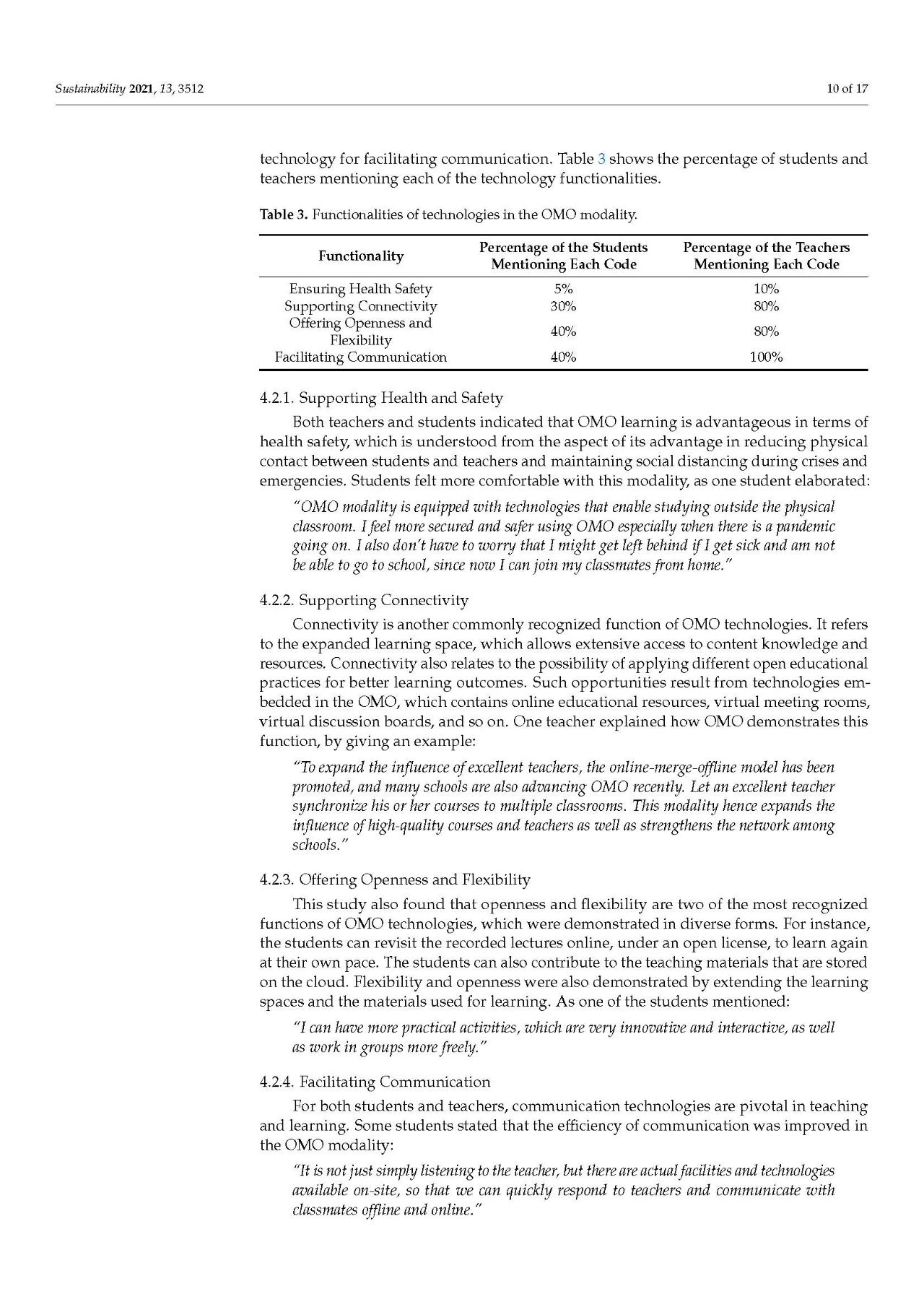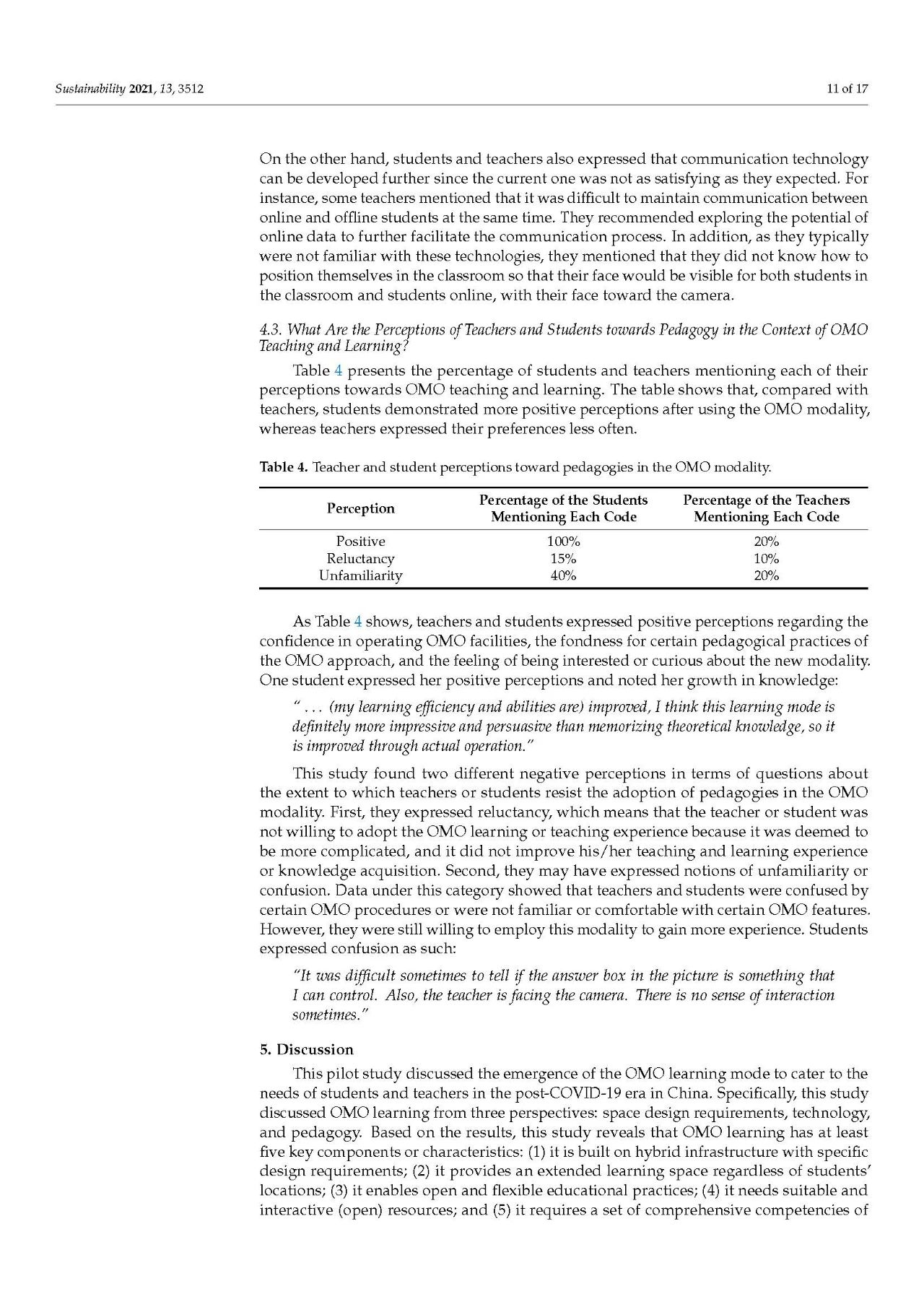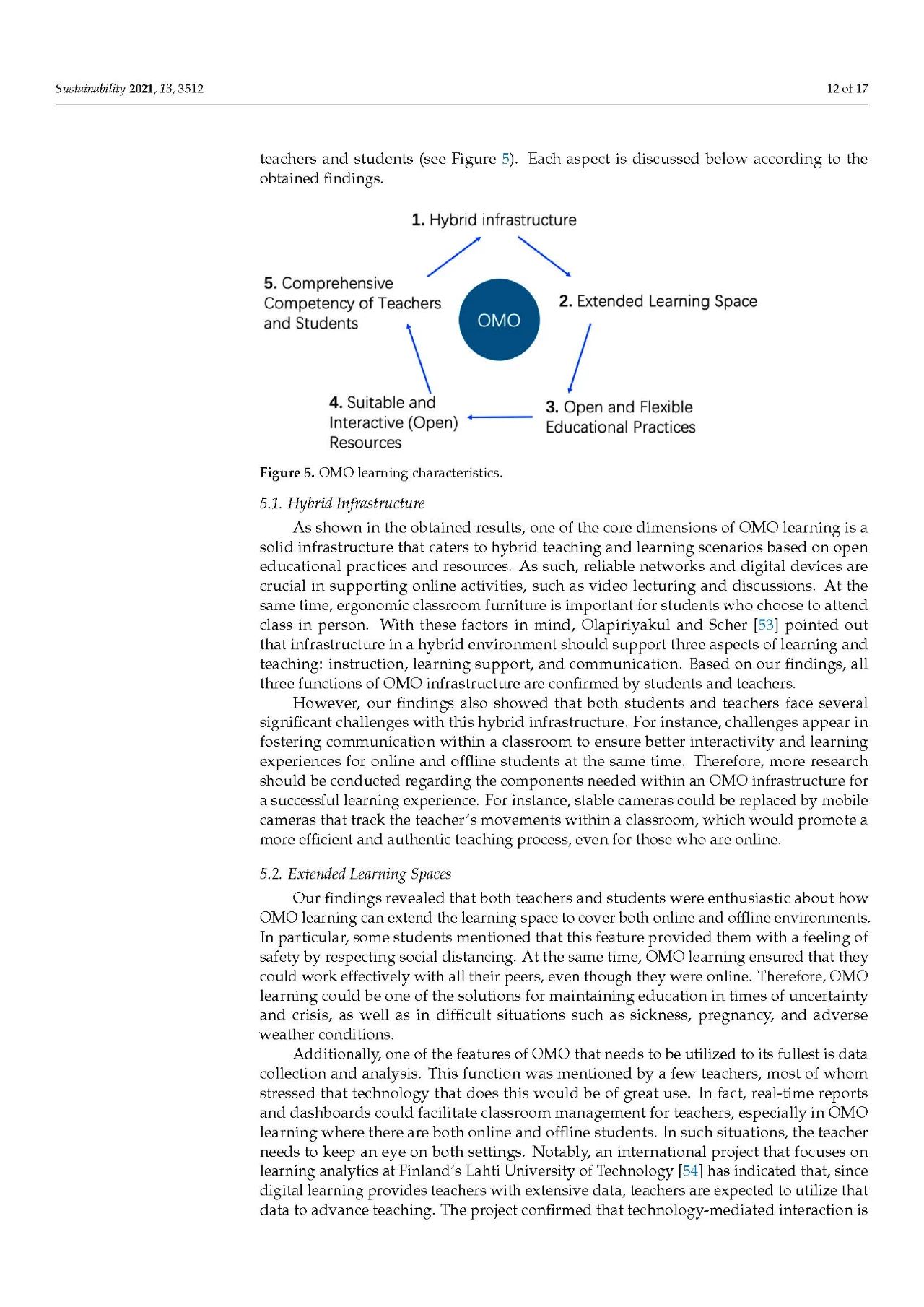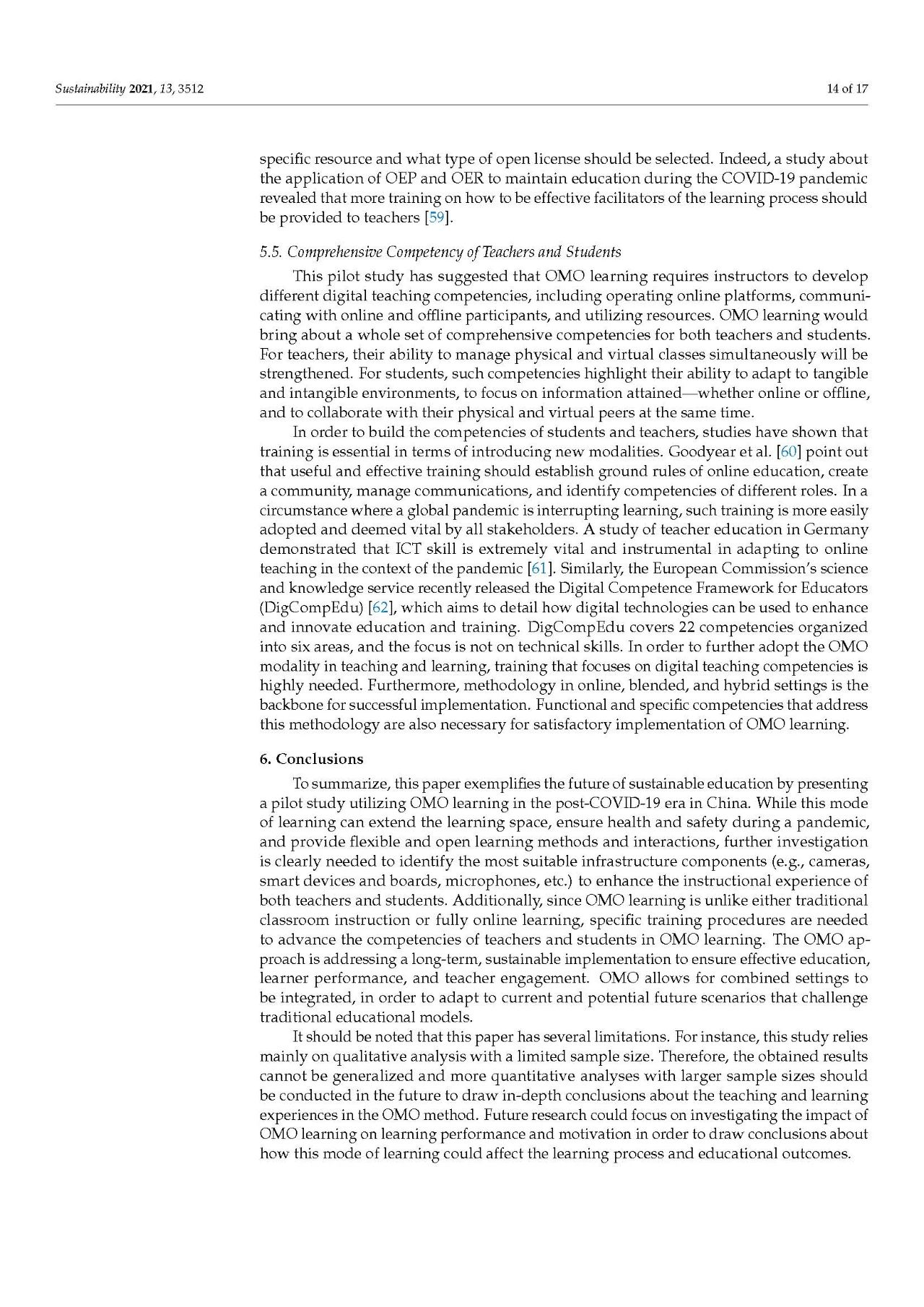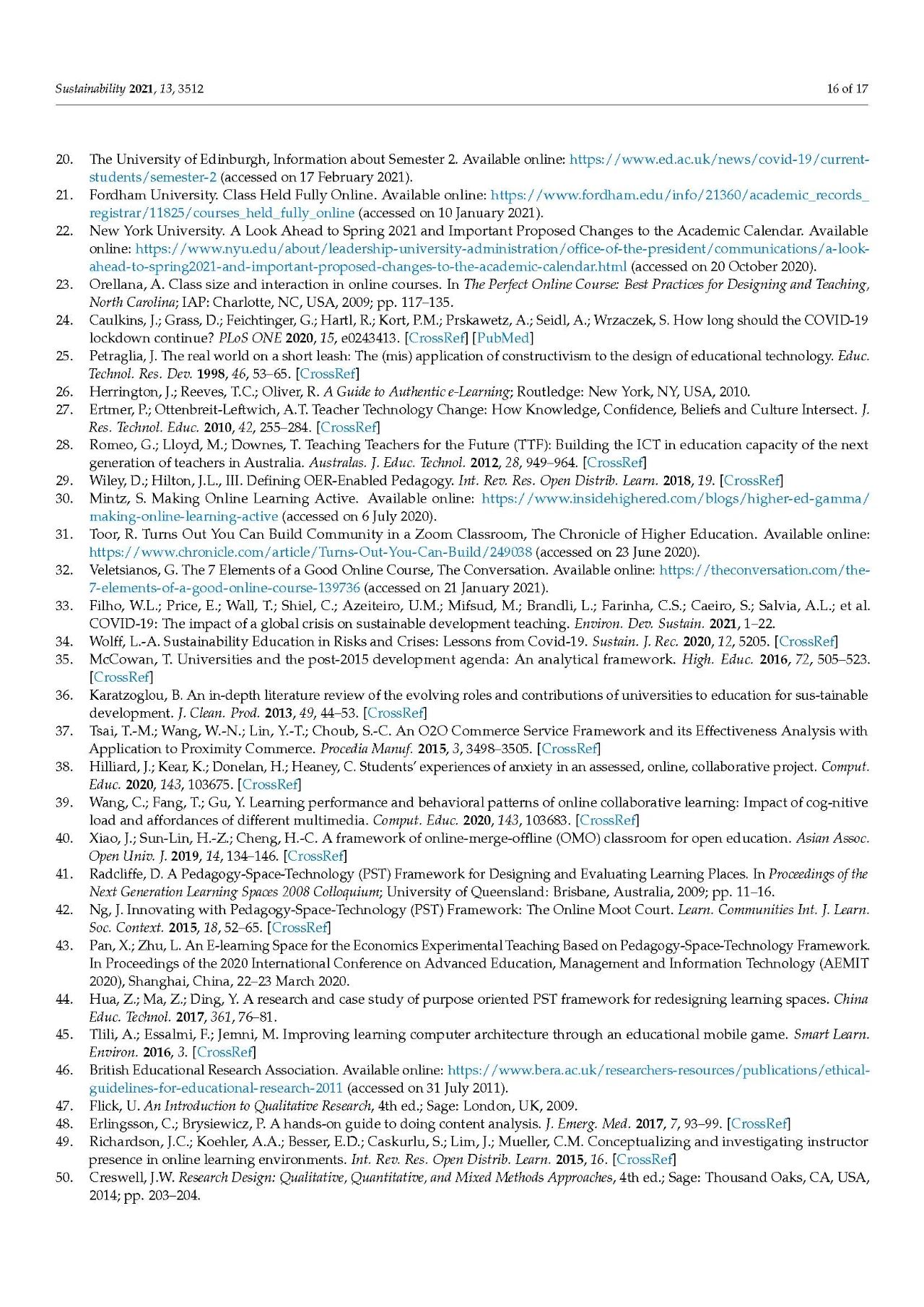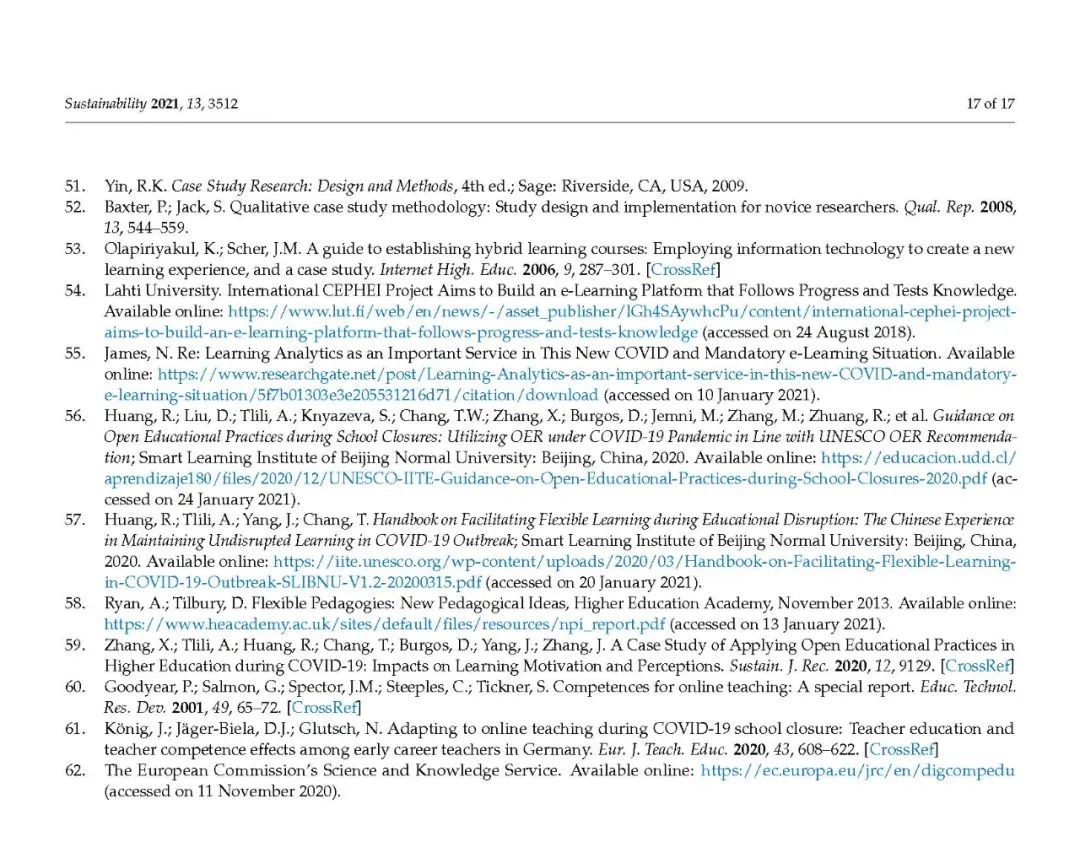黄荣怀等:后疫情时期线上线下融合的学习现象初探
发布时间:2021-04-10 17:32作者:小编来源:北师大智慧学习研究院点击量:
Abstract
The COVID-19 pandemic revealed the need for new innovative methods to effectively maintain education in times of crisis and uncertainty. This study first presents the Online-Merge-Offline (OMO) learning approach, a way of learning that caters to the new needs of students and teachers in the post-COVID-19 era. OMO learning utilizes a hybrid infrastructure that combines Open Educational Practices and real-time learning spaces, both online and offline. This study then discusses the early results of a pilot experiment investigating OMO learning in China for three months from three dimensions: space design requirements, technological considerations, and pedagogical considerations. A qualitative, two-stage study focused on content analysis and a multiple-case study were carried out in the context of courses about English language learning with 30 teachers and students. The obtained findings showed that, although both teachers and students had a positive attitude towards OMO learning, they mentioned that a comprehensive set of core and functional competencies are needed—including the use of online platforms, communication skills, class management, and the effective use of resources. Additionally, the findings showed that more effort should be paid to classroom design, such as infrastructure, to efficiently support OMO learning. This study exemplifies a new approach toward the future of education to ensure sustainable education in this complex and uncertain world.
Keywords
online-merge-offline learning; COVID-19; learning space; open education; pandemic
Author information
Ronghuai Huang1,Ahmed Tlili1,Huanhuan Wang1,Yihong Shi1,Curtis J. Bonk2,Junfeng Yang3,Daniel Burgos4,5
1.Smart Learning Institute of Beijing Normal University, Beijing 100875, China
2.Instructional Systems Technology Department, School of Education, Indiana University, Bloomington, IN 47405, USA
3.School of Education, Hangzhou Normal University, Hangzhou 311121, China
4.Research Institute for Innovation & Technology in Education (UNIR iTED), Universidad Internacional de La Rioja (UNIR), 26006 Logroño, Spain
5.Research Unit Self-Directed Learning, Faculty of Education, North-West University, Potchefstroom 2531, South Africa


